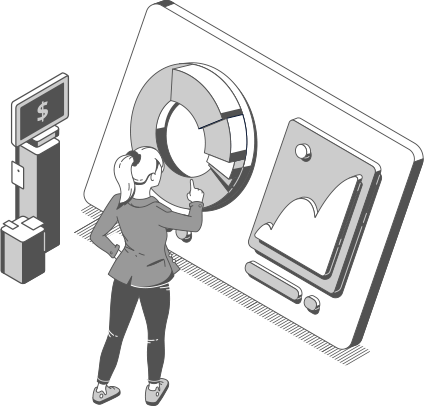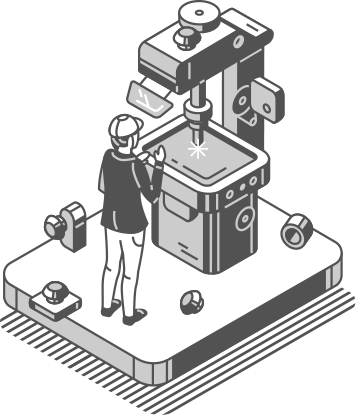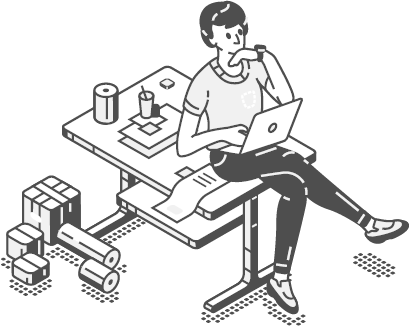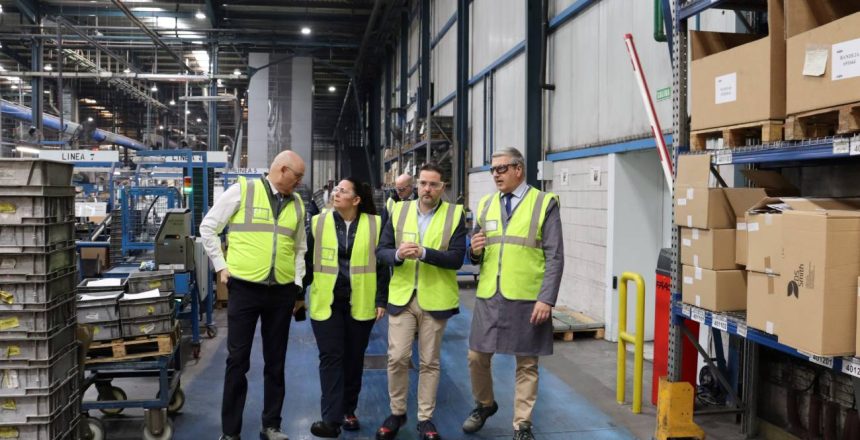The multinational currently employs 350 people and exports 85% of its production to more than 60 countries. It has also reinforced its commitment to sustainability by expanding its photovoltaic plant, which now generates 35% of the energy it consumes.
The Mayor of Tudela, Alejandro Toquero, and the Councillor for Industry, Irune García, visited the company to learn first-hand about its activity and needs related to municipal administration.
They were received by the General Manager, Rubén Llánder; the Human Resources Manager, Raúl Simón; the CEO, Eduardo Unzu; and the Industrial Manager, José Luis Sainz.
Founded in 1961, the company stands out for its high quality and efficient braking solutions of which it produces more than 22 million units annually. Moreover, throughout its history, the company has been committed to innovation and continuous improvement, adapting its products to the demands of the sector and technological advances.
With its sights set on the future, Icer Brakes is strengthening its commitment to sustainability and adapting to new environmental regulations. As part of this strategy, it participates in the NEEVE project, focused on developing innovative techniques to measure and reduce non-combustion emissions, such as particulate matter generated by braking systems.
On the other hand, in collaboration with SKF, it has implemented RecondOil technology at its Tudela plant, optimising the reuse of industrial oil and significantly reducing waste and CO₂ emissions.
STRONG INDUSTRY PREPARED FOR THE ELECTRIC TRANSITION
The automotive sector in Navarre plays a crucial role in the regional economy, contributing around 25% of industrial GDP, equivalent to 6% of the region’s total GDP. With a business fabric made up of 120 companies and a turnover of 6,500 million euros, this industry generates direct employment for some 13,000 people, representing 4.5% of total employment in the region. It also leads exports from Navarre, accounting for 46% of exported goods, making it the main export engine.
Its dynamism is reflected in the strong presence of first- and second-tier supplier companies, many of them multinationals, which have been able to adapt to the demands of national and international manufacturers. Thus, more than 65 % of industrial activity is concentrated in the production of components related to transmission, powertrain and vehicle interiors. This growth has been largely driven by Volkswagen Navarra, which leads in terms of both employment and production capacity, with more than 4,600 workers at its Landaben factory.
For its part, the Automotive Cluster of Navarre (ACAN), founded in 2011, brings together most of the companies in the sector and acts as a catalyst for competitiveness. Its aim is to consolidate Navarre as a benchmark region in the automotive sector, fostering cooperation between the different players in the value chain. This initiative strengthens the regional positioning in a key sector for economic and industrial development.
For more information on the important role that the automotive industry plays in the economy of Navarre and the possibilities it offers for attracting new investment and talent to the region, please visit the following link.
Source: Navarra Capital




